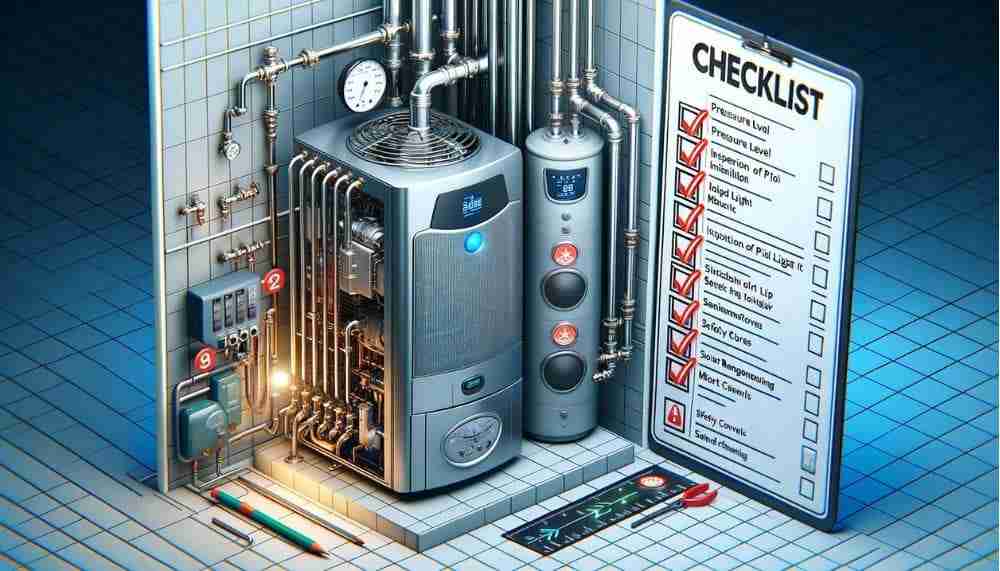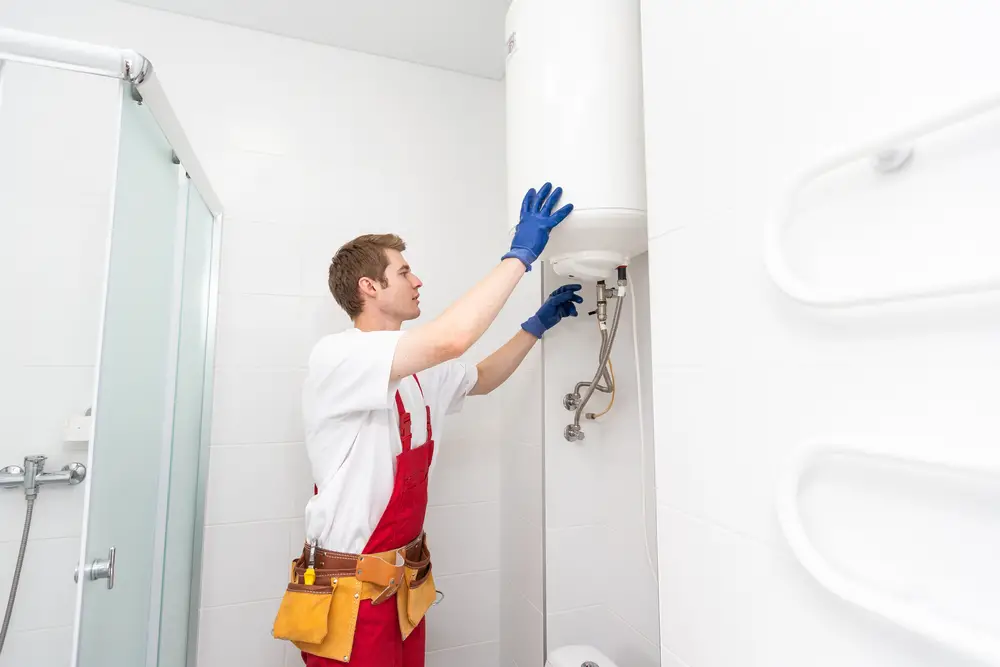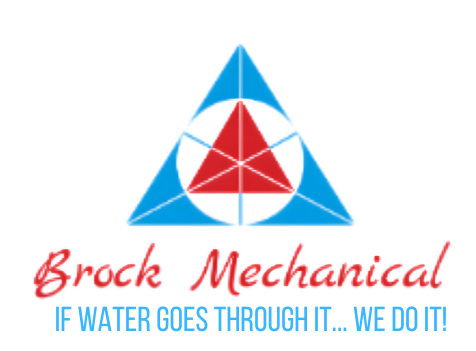
Maintaining a boiler system effectively may be a demanding endeavor. However, with the correct boiler tune-up checklist in hand, it may be surprisingly simple. This thorough guide will give you a simple but complete maintenance checklist to ensure your boiler performs optimally throughout the year.
Introduction to Boiler Maintenance
Many residential and commercial buildings rely on boilers to provide heat and hot water. However, they, like any other mechanical system, need regular maintenance for comfort and efficiency. Neglecting boiler maintenance may result in lower efficiency, greater energy expenditures, and potentially dangerous circumstances. This book is intended to simplify boiler maintenance, making it accessible even to individuals with less technical understanding.
Understanding Your Boiler System
Before getting into the boiler tune-up checklist, you need to have a fundamental grasp of your boiler system. Boilers exist in various varieties, including gas, oil, and electric. Each type has unique maintenance needs. Familiarize yourself with your boiler’s handbook, which offers crucial information particular to your model.
Annual Professional Inspection
Why It’s Necessary
A yearly expert inspection is an essential component of boiler maintenance. This should be done by a boiler maintenance expert who will inspect and tune up your boiler to ensure it is operating safely as well as effectively. They will conduct a comprehensive check to discover any possible concerns that the inexperienced eye may miss.
What to Expect
During a professional inspection, the technician will look for leaks, examine the heat exchanger, test safety controls, and verify the system is operating at the proper pressure. They will also clean critical components, such as the burner and heat exchanger, to optimize performance.
Monthly Boiler Tune-Up Checklist
Regular monthly check-ups may significantly increase the life of your boiler and prevent small concerns from becoming severe ones.
Visual Inspection
Begin with a visual evaluation of your boiler. Check for evidence of leaks, corrosion, or damage to the boiler and its components. Inspect the area around the boiler for any blockages or flammable debris.
Check Pressure Levels
Make sure that the boiler’s pressure level is within the acceptable range. An improper pressure setting might result in inefficiency and excessive wear and tear.
Inspect the Pilot Light and Flame
In gas boilers, check the pilot light and flame. The flames should be blue. A yellow or orange flame signifies incomplete combustion and might signal a significant hazard, such as carbon monoxide generation.
Test Safety Controls
Regularly check the boiler’s safety controls, such as the pressure relief valve and thermostat. These are essential for proper functioning.
Quarterly Maintenance Tasks
Include these extra actions in your boiler maintenance regimen once every three months.
Clean and Adjust
Remove any dust or dirt from the boiler’s components. Check the fan belt tension and adjust the burner as needed.
Lubricate Moving Parts
Lubricate any moving components to guarantee smooth operation and reduce wear and tear.
Inspect and Clean Filters
Check and clean or replace any filters that are present in your system. Dirty filters obstruct airflow and decrease efficiency.
Seasonal Maintenance

Preparing for Winter
Before the heating season starts, undertake a thorough inspection. This involves verifying that all components are clean and working, with no leaks or obstructions in the system.
Summer Shutdown
If your boiler isn’t utilized in the summer, this is an excellent opportunity to do more comprehensive maintenance. Consider arranging your yearly professional inspection service around this time.
Common Issues and Troubleshooting
No Heat or Hot Water
This might be due to a variety of difficulties, including insufficient water pressure, a defective thermostat, or a damaged diaphragm and airlock. Some of the problems may be identified and corrected using the monthly boiler tune-up checklist.
Leaks and Drips
Leaks may result from pressure issues or broken components, making identifying their source vital in order to select an effective remedy.
Strange Noises
Banging, whistling, or gurgling noises may indicate air in your system, low water pressure, or imminent pump failure – issues that regular maintenance can often prevent.
Boiler Not Igniting
A common issue with boilers is the failure to ignite, which can be caused by several factors. These may include a lack of fuel if it’s a gas or oil boiler, ignition system malfunctions, or blockages in the system preventing proper airflow.
Energy Efficiency Tips
In addition to maintenance, consider these recommendations for increasing your boiler’s energy efficiency.
Insulate Pipes
Insulating your boiler’s pipes can reduce heat loss and improve efficiency.
Upgrade Thermostat
Upgrade to a smart thermostat for better control and efficiency.
Regularly Bleed Radiators
This removes trapped air, allowing your heating system to work more efficiently.
Wrapping Up: Boiler Maintenance Essentials
Regular maintenance of your boiler system is more than simply avoiding malfunctions; it also ensures efficiency, safety, and lifespan. By following this simple, to-the-point boiler tune-up checklist, you can be certain that your boiler system is in excellent shape.
Remember that although many of these duties can be completed by the homeowner, others, such as the yearly professional inspection, should always be left to licensed HVAC specialists like those at Brock Mechanical. Their expertise ensures a thorough and safe inspection of your boiler system, identifying any issues that might not be evident to the untrained eye. Keeping this boiler tune-up checklist accessible and relying on Brock Mechanical’s professional inspection services in Michigan will help ensure that your boiler operates efficiently and safely for many years.


